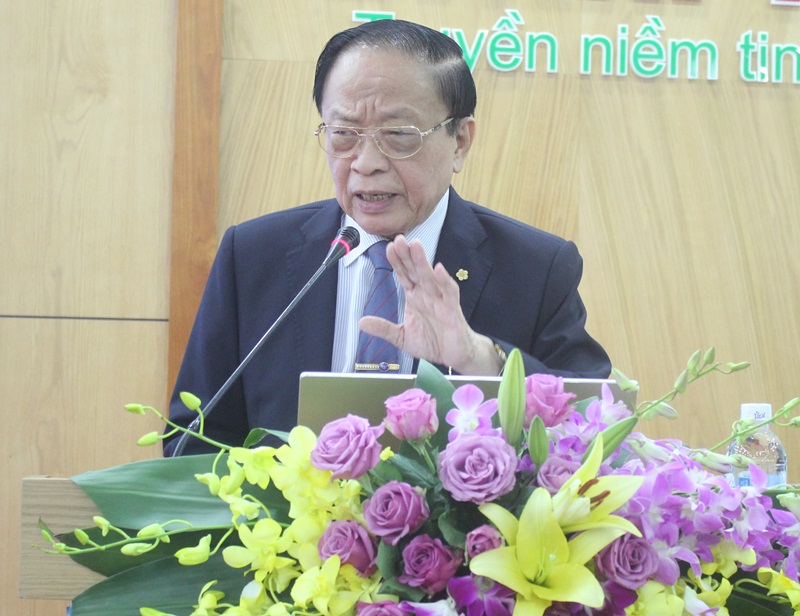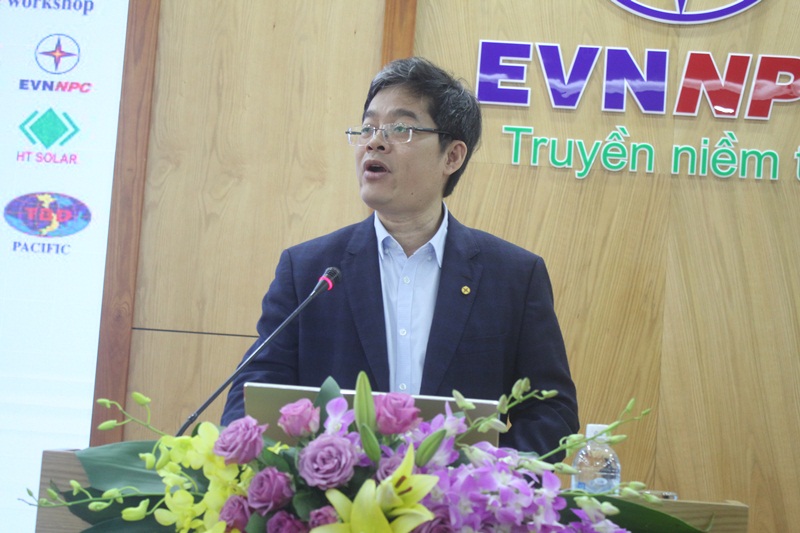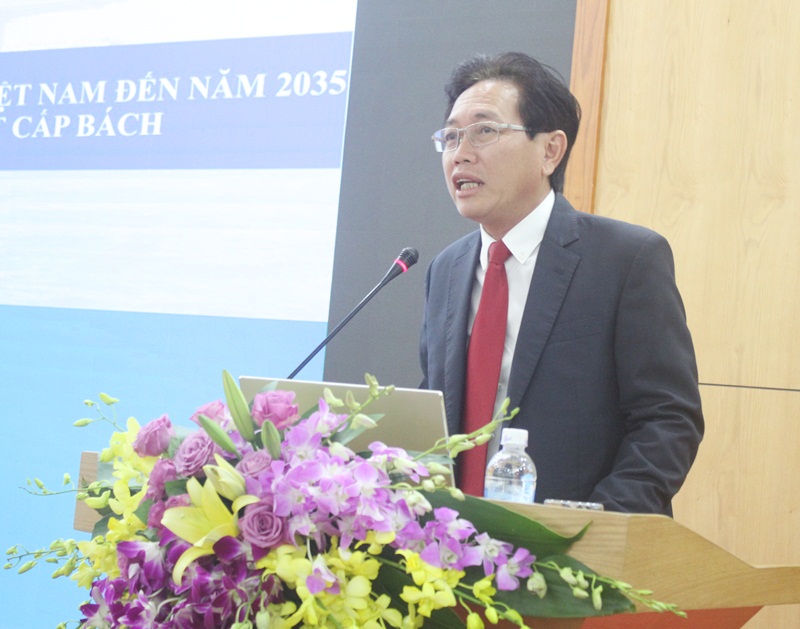International conference on Sustainable energy development and environmental protection in Vietnam
11:03 | 03/12/2018

VEA Chairman Mr. Tran Viet Ngai
Speaking at the opening ceremony, VEA Chairman Tran Viet Ngai affirmed that over the past years, Vietnam's energy sector has developed very strongly to meet the energy demand of the socio-economic development and people’s life of the country. However, the targets of the master plans of the Power, Coal and Petroleum sectors have not been achieved as required. Therefore, in coming years ensuring energy security will face a lot of difficulties and challenges as: the shortage of domestic primary energy resources leading to a greater dependence on the import fuel sources; demand of investment capitals for energy development and requirements for environmental protection more and more increasing and being severe, but attracting the domestic and foreign investors to participate in energy sectors being unqualified, etc.
In his speech, Mr. Nguyen Tai Anh, EVN Deputy General Director said: according to the Adjusted National Power Planning VII (PDP+), in order to meet the demand for electricity in the coming years, the capacity of Vietnam's power system will reach 60,000 MW by 2020, 96,500MW by 2025 and 129,500MW by 2030. It means that, in period of 2016-2030, the power system of the country need to be supplemented about 6000 - 7000 MW per year.
However, in fact, recent years, the investment in construction of power projects encountered a lot of difficulties, many of which were behind schedule planned PDP+, even one number of projects was slower than 5 years.
Therefore, ensuring electricity supply is putting EVN in front of many difficulties and challenges.

EVN Deputy General Director Mr. Nguyen Tai Anh
According to Mr. Nguyen Tai Anh, the risks that EVN were, are and will faced for EVN should be as follows: the number of power plants, construction of which has been started to be put into operation for the next five years is very low compared to the requirements in PDP+; many power projects, especially thermal power projects in the South, are potentially risky and may continue to be delayed compared to current assessments; ensuring the fuel supply for electricity generation is still yet implicit for the risks; and some of the difficulties and challenges in operating the electricity system with an increasing proportion of renewable energy sources.
Regarding the coal industry, Mr. Le Van Duan, Director of the Joint Stock Company for Consulting and Investing in Mines and Industry, the Representative of Vinacomin said: Vinacomin and Northeast Corporation maintain leading role in producing 95% of the total sale coal production of the country as 42 – 55 million tons per year. This is an opportunity but also a great challenge.
It is clear that the domestic coal sources cannot satisfy the more and more increasing demand, so as according to the forecast, the import coal amount of the country should be up to 100 million tons, of which 88 million tons for power generation by 2035; the coal prices will be implemented by market mechanism in a principle of the cost reciprocation with a reasonable interest and referring to CIF imports.
The challenges should be faced as the low level of the coal mining and processing technologies; lack of the infrastructure, transport systems, roads, bridges, ports and warehouses for coal production and trade, especially for imported; the great capital requirements for exploration, mining, sorting, processing and infrastructure construction.
In particular, lack of capital to invest in mine development under the master plan, lack of modern technology and management techniques, including mining and processing technologies. Lack of capital to invest in coal mining abroad to have a stable source, and in infrastructure and logistics for coal imports. Using a lot of the labors, especially in the auxiliary service and low labor productivity do not meet the requirements for developing coal mines.
In addition, the complexity of geological conditions of the mines, large fluctuations, many bogs, strict environmental protection, deep exploitation, increasing costs and risks in investment in coal mining, especially in coal mining abroad... also are the great challenges.

PVN General Director Mr. Nguyen Vu Truong Son
Affirming the great contributions of PVN recent years, Mr. Nguyen Vu Truong Son, PVN General Director said: in the years before 2015, beside the important achievements in the oil and gas search, explore and exploitation, PVN contributed an average of 20-25% to the state budget revenue and 10-12% of GDP of the country. In addition to its significant achievements in Oil & Gas Exploration and Production of the country, in particular, PVN has successfully implemented and put into operation three national key oil and gas projects as Ca Mau Gas-Power-Fertilizer Complex, East - South East Gas -Power - Fertilizer projects and Dung Quat Oil Refinery Project. These projects are operating effectively but and greatly contributing to the socio-economic development of the country in general and the socio-economic development of the localities where the projects operate.
However, In the period from 2015 to now, PVN has encountered unprecedented difficulties as: the sharp decline in global oil prices has negatively impacted the whole world oil and gas industry, including Vietnam; many exploration and exploitation projects have to stop, stretch progress, causing the service sector to be seriously affected.
Competition among oil and gas exploration groups/companies and transport companies in the world is more and more fierce and countries have increased protection for their domestic enterprises. These factors seriously affect oil and gas search, exploration and exploitation services of PVN. Some of the negative cases in the PVN and its member units caused many officials to be dealt with by law, which has badly affected the brand and reputation of PVN, affecting the mind and emotions of the people and labors.
VietnamEnergy.vn







